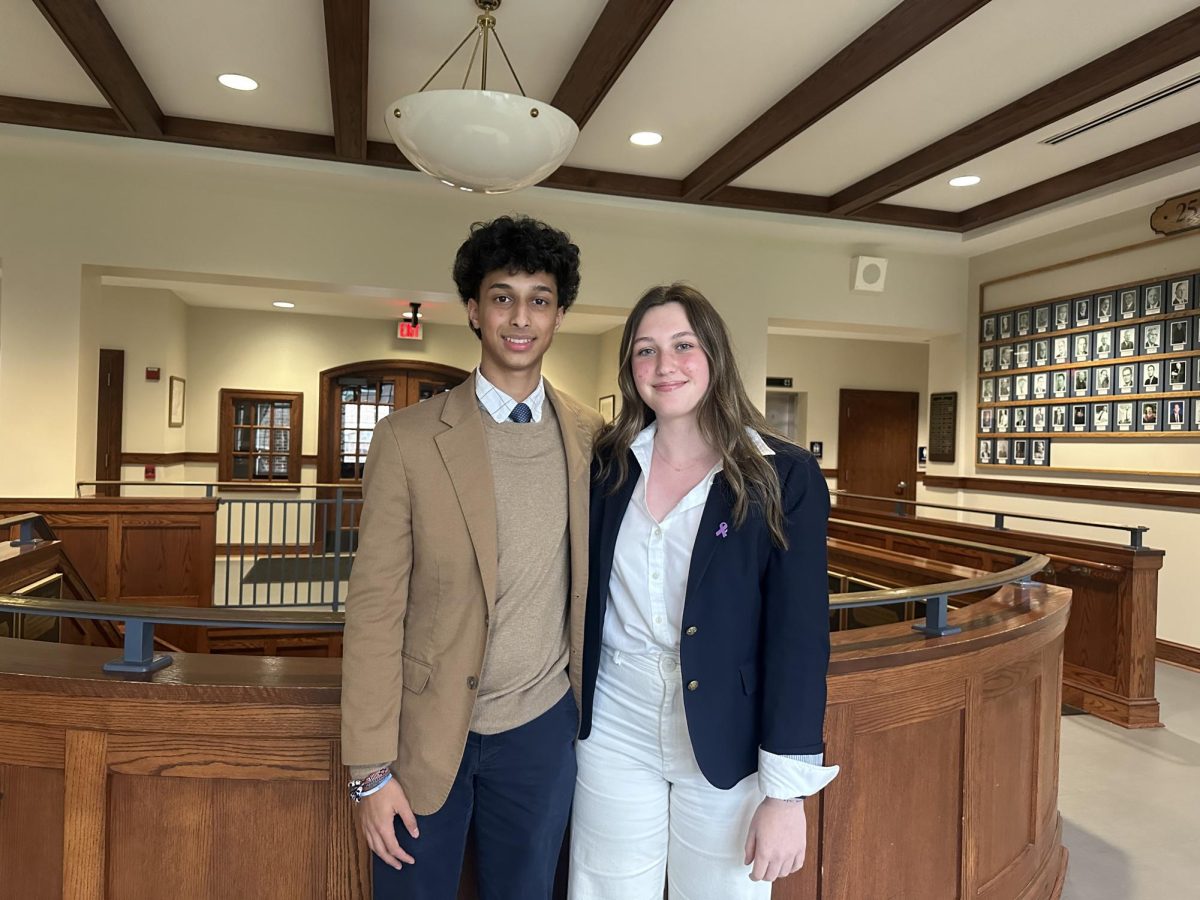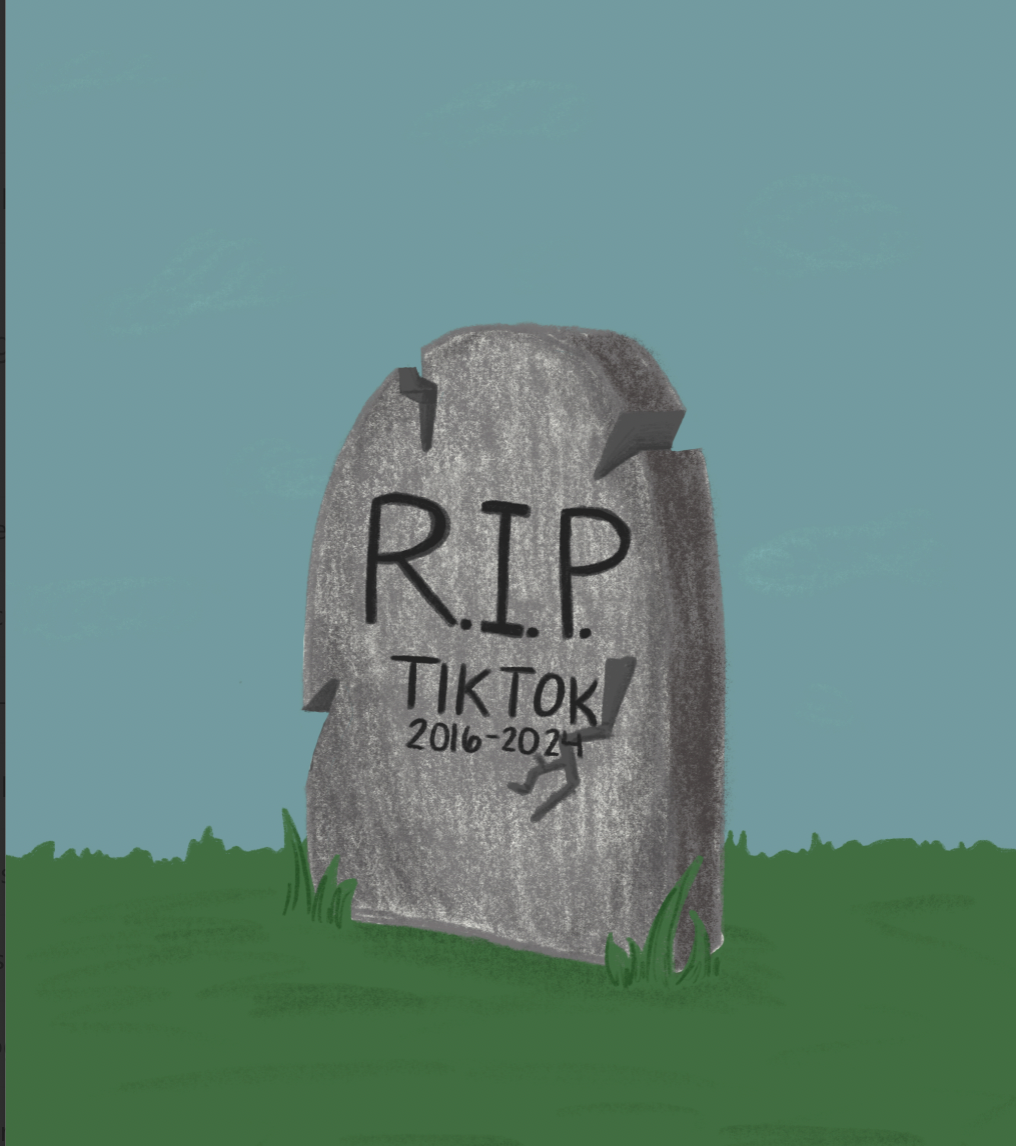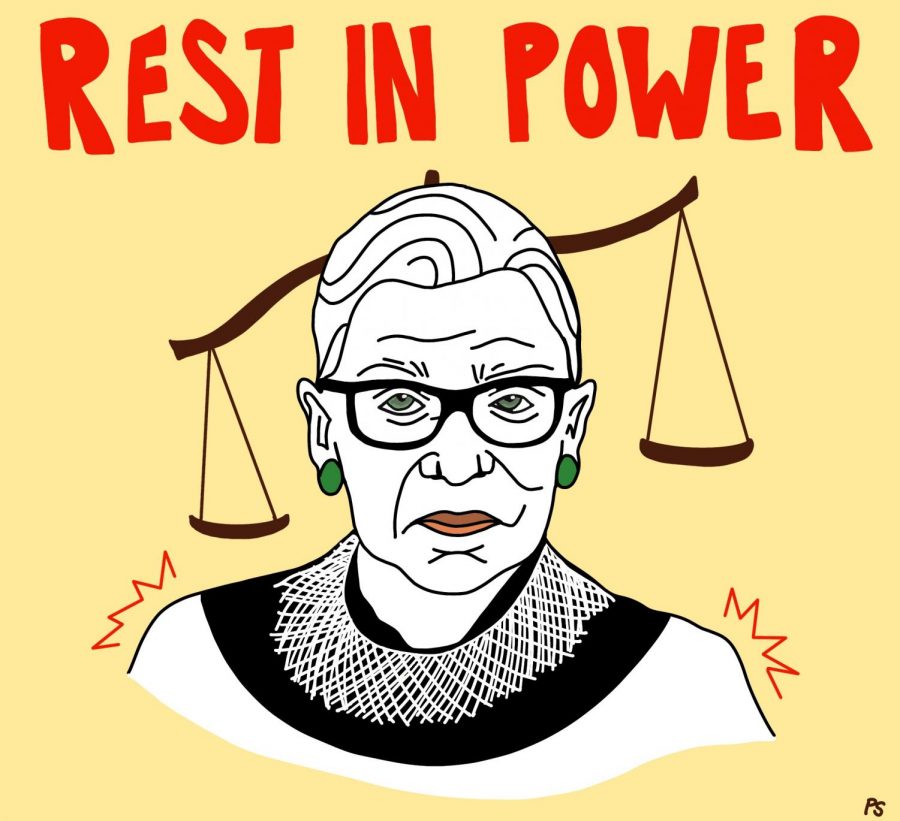Thank you, Justice Ginsburg, and I’m sorry
The recent passing of Justice Ruth Bader Ginbsurg has made national headlines, dominating the content of news mediums everywhere, and rightly so. On Sept. 18, the world lost an incredible woman –– one that has since been remarked in her legacy by The New York Times as a “trailblazing feminist” and by National Public Radio as a “champion of gender equality.” Her death has left millions in mourning over the triumphs of her career. Justice Ginsburg worked tirelessly and passionately for all American people, serving 13 years on the Supreme Court, all while battling cancer and furthering a narrative of equality beyond heteronormativity.
Justice Ginsburg leaves behind the legacy of being adamant and tenacious in the face of adversity to cultivate a more fair and just nation. She played a pivotal role in the victories of the United States v. Virginia, advocating for non-gender-discriminate admission to the Virginia Military Institute in 1996, and in the Obergefell v. Hodges cases, when she fought for the legalization of same-sex marriage in all 50 states in 2015. Both positions of which Her Honor took demonstrated her perception of intersectional humanitarianism as a constitutional right.
Her legacy, though sacred and valid of being praised, has warranted feelings of fear and hopelessness over those of gratitude and reverence. This is not to say that Americans aren’t grateful for Justice Ginsburg and her contribution, but there exists a very real sense of concern for the proceedings of her passing.
Just three days after her death, jurist and known religious conservative Amy Coney Barrett was informed by President Donald Trump of her nomination to fill the justice’s seat in court, the formal nomination coming a week later. Prior to this news, many Americans made speculations about who Trump would appoint, and his ability to do so sparked controversy itself. According to The New York Times, if confirmed by the U.S. Senate, Barrett would “move the court slightly but firmly to the right, making compromise less likely and putting at risk the right to abortion established in Roe v. Wade.” Barrett’s moral compass and political stance are what The New York Times regards as “an almost uniformly conservative voting record.” Barrett’s confirmation would make for a major shift in the court, causing Republican appointees to rule with a 6 – 3 majority. The agenda of the Republican justices has been made quite clear by Trump. Roe v. Wade will be under fire, and there will be a strong push for conservative reform on policies reflecting topics such as immigration, abortion, discrimination and the right to bear arms.
With the implications of Justice Ginsburg’s passing clear to most, there seems to be an apparent dichotomy, a division of grievance and reluctance among them. Meaning to say that while Americans want to cherish Justice Ginsburg, or what is now the legacy of her, there is an overarching fear involved in the world where she exists as such: a legacy. For that reason, more so than gratitude, I feel angry, upset and frustrated –– frustrated that our country cannot mourn the loss of a hero without fearing the world without them. I feel angry that the rights of Americans who don’t look and talk and love like those of the majority were resting upon the back of one woman. I feel upset that the absence of her could result in the disenfranchisement of them. So, yes, I extend my gratitude to Justice Ginsburg. I marvel in her capabilities, the strength which she displayed and the path she paved for women to believe the same of themselves. Thank you, Justice Ginsburg, and I’m sorry –– sorry your legacy exists in a world where your absence provokes more fear than it does love. I’m sorry that your fight to prove your and others’ humanity runs the risk of being overturned. And I’m sorry that the American people aren’t afforded the democracy to say otherwise.




























